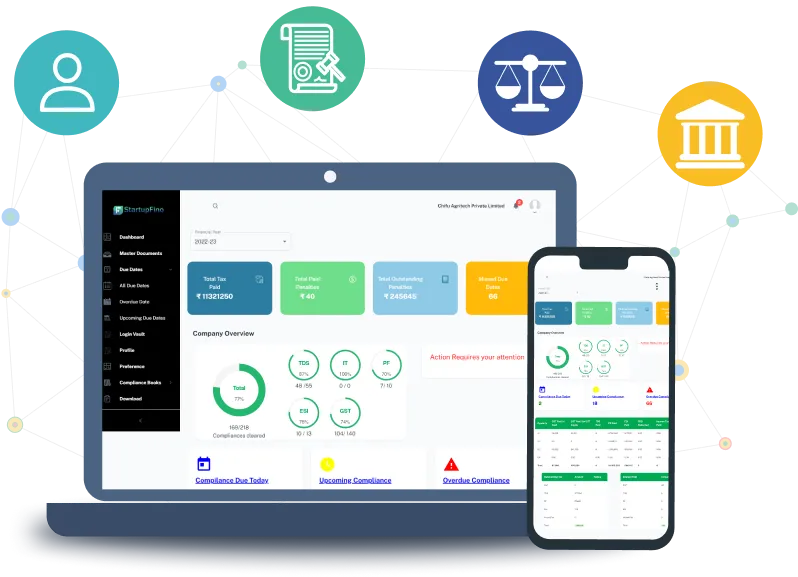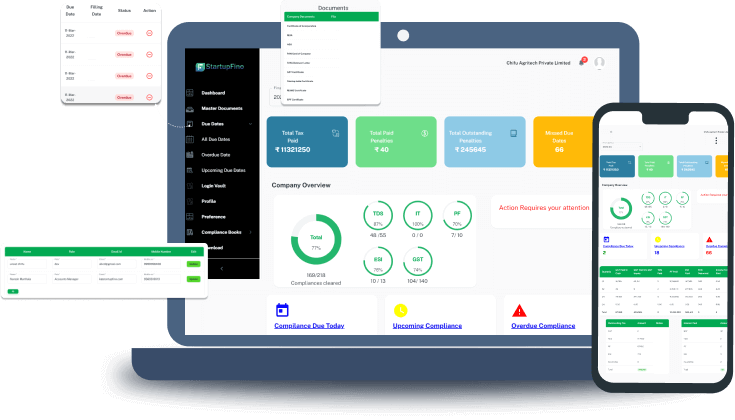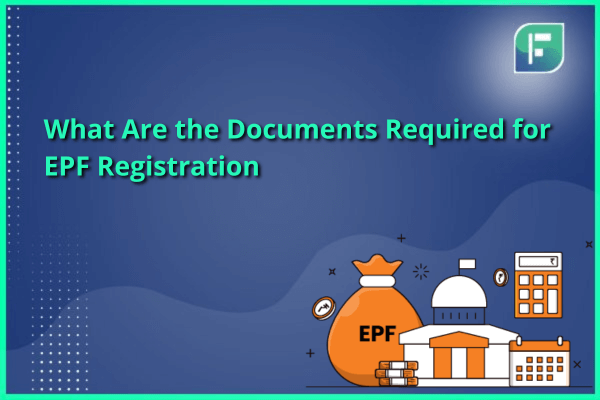Payroll compliance, often referred to as statutory compliance in India, is the legal framework for conduct of workforce for organisations. Many organisations invest significant time and effort in ensuring payroll compliance due to its vital importance. Organisations often encounter legal challenges, including wage disputes, pressure from trade unions and confrontations with assertive employees, among others. Payroll compliance services exist to safeguard the rights of both employees and employers, promoting a harmonious coexistence.
While businesses usually aim to uphold payroll compliance, without a rigorous protocol in place, it can accidentally lead to issues, potentially leading to legal issues and complications. Therefore, a proactive approach to payroll compliance services is essential to ensure the well-being of both employees and the sustainability of businesses in India.
Understanding Concept of Payroll
Payroll is when a business pays its employees. This happens at regular times, like every month or every other week. It's not just the basic money employees get for working, but it can also include extras like bonuses, benefits and money set aside for taxes. Usually, the people who handle payroll work in the company's money or people department. But sometimes, a company hires other special companies to do all this money stuff, like making paychecks, giving out benefits, figuring out insurance and doing the math for taxes.
Modern payroll processes are increasingly using technology to simplify payroll management. StartupFino plays a significant role in this by providing digital solutions that enhance convenience, speed and accuracy in payroll processing and Payroll compliance services. These technology-enabled services cater to the evolving needs of the outsourcing economy, making payroll management more efficient and user-friendly.
Understanding Payroll Compliance Services
Payroll compliance services are specialised third-party company or organisation that offers comprehensive assistance with various aspects of payroll processing. These services are designed to simplify the complex tasks associated with the timely and accurate payment of employees. Key functions and features of payroll services include:
1. Employee Time and Attendance:
Payroll compliance services often incorporate time tracking systems to record and manage employee work hours, ensuring accurate and efficient payroll processing.
2. Worker's Compensation:
These services can also lend a hand with worker's compensation. They make sure everything's in order when someone gets hurt at work and needs compensation. They help companies follow the law and deal with insurance stuff for workplace injuries.
3. Payroll Taxes:
Payroll compliance services figure out how much to take out of your pay for things like income tax, Social Security and Medicare.
4. Direct Deposit Information:
These services facilitate direct deposit for employee paychecks, reducing the reliance on paper checks and providing a more convenient payment method.
Advantages of Using Payroll Compliance Services
Obtaining payroll compliance services, especially through automated payroll systems, offers numerous advantages for businesses. Given below are some key benefits:
1. Improved Accuracy:
Automated payroll systems reduce the risk of errors in payroll calculations. These systems are designed to follow specific rules and regulations, resulting in fewer discrepancies in employee paychecks. This improved accuracy not only saves time but also helps businesses avoid costly errors.
2. Reduced Costs:
Automated payroll systems lead to long-term cost reductions. They minimise the risk of payroll errors, which can result in fewer penalties and fines. Additionally, the time and resources saved through automation lead to lower labour costs.
3. Enhanced Compliance:
Automation simplifies compliance with complex tax and payroll laws. Automated systems can automatically calculate and withhold taxes, generate reports and help verify compliance. This ensures that businesses remain up to date with regulatory requirements.
4. Satisfied Employees:
People like it when they get paid the right amount and right on schedule. Automated payroll systems make sure this happens, which makes employees happy. Happy employees tend to work better and stick with their jobs.
5. Time Savings:
Automation significantly reduces the time and effort required for payroll processing. This time can be redirected to other strategic tasks and responsibilities within the organisation.
6. Simplified Recordkeeping:
Automated systems maintain organised and easily accessible payroll records, which can be beneficial during audits and when addressing employee inquiries.
7. Tax Compliance:
Automated payroll systems handle tax calculations, withholdings and filings, reducing the risk of tax-related errors and ensuring businesses remain in good standing with tax authorities.
8. Data Security:
Payroll services often include efficient security measures to protect sensitive payroll data, reducing the risk of data breaches and unauthorised access.
Significance of Payroll Compliance in India
India has a comprehensive framework of both state and central labour laws, which companies are obligated to adhere to. Key aspects of the importance of payroll compliance in India include:
1. Legal Conformity:
Compliance with labour laws is a legal requirement in India. Companies must adhere to these laws to operate legally and avoid legal battles and penalties.
2. Employee Well-being:
By following payroll rules, employees get what they're supposed to, like fair pay, maternity benefits and savings funds. This takes care of the well-being of the workforce.
3. Smart Money Management:
Following the rules makes good financial sense. It means avoiding expensive fines that can hurt a company's finances.
4. Time and Resource Allocation:
Devoting time and resources to maintaining compliance is a proactive approach that safeguards against legal issues, ultimately saving the company from the complexities of legal battles.
Functions of Payroll Compliance Services
Payroll compliance services play an important role in enhancing the payroll management process for businesses. Some of the key functions they perform are given below:
1. Automated Payroll Processing:
Payroll services automate the entire payroll process, reducing manual calculations and the potential for errors. Employees can clock in and out and the service automatically tracks their hours and calculates their pay.
2. Tax Calculation and Compliance:
Payroll services handle the calculation and withholding of various taxes, including income tax, Social Security, Medicare and state and local taxes. They ensure compliance with changing tax laws and regulations.
3. Direct Deposit:
They facilitate direct deposit for employee paychecks, making it a more convenient and efficient method of payment compared to traditional paper checks.
4. Employee Self-Service:
Payroll services often provide employees with self-service portals, allowing them to access their pay information, forms and other payroll-related information online.
5. Time and Attendance Management:
Many payroll services include time tracking features that help businesses manage employee work hours and attendance more effectively.
6. Customised Reporting:
They offer various reporting options, enabling businesses to generate custom reports and gain insights into their payroll data.
7. Compliance with Employment Laws:
Payroll compliance services stay updated on changes in employment laws and regulations, ensuring that businesses remain compliant with the latest legal requirements.
8. Recordkeeping:
They maintain detailed payroll records, ensuring that businesses have an organised and accessible history of payroll transactions.
Types of Payroll Service Providers
The choice of payroll service provider depends on the specific needs of the business, its size and the level of control and involvement the business owner desires in managing payroll and related functions.
Some of these types are given below:
1. Payroll Software Provider:
These providers offer online software that automates payroll processing and simplifies calculations. While this type of service can produce more accurate results, the responsibility for taxes and compliance may still rest with the business owner. Users of this software typically manage payroll in-house.
2. Full-Service Provider:
Full-service payroll providers handle all aspects of payroll on behalf of the client. They take care of payroll calculations, tax withholdings, compliance and often provide additional services like time and attendance tracking. This option is typically the most convenient for business owners, as it offers peace of mind and frees up their time.
3. Accountant:
Some businesses may choose to work with an accountant for their payroll needs. Accountants can offer valuable advice on local tax regulations specific to the business. However, accountants may not be available around the clock, especially during tax season.
4. Professional Employer Organisation:
PEOs offer a co-employment arrangement that includes full-service payroll as well as compliance monitoring, HR support, competitive benefits packages and more. This comprehensive approach helps businesses not only with payroll but also with broader HR and compliance needs.
Major Payroll Regulations in India
In India, various payroll regulations are in place to govern the payment of wages and ensure fair labour practices. Given below are some of the significant regulations:
1. The Payment of Wages Act, 1936:
This Act makes sure that workers in different kinds of workplaces get their salaries without delay. As per this legislation, employers must pay theirworkers at least once a month. As it is mentioned in this Act, the min. wage rates are decided by both the Central Government and State Governments.
2. Minimum Wages Act, 1948:
This Act came into existence to prevent the unfair treatment of laborers by setting a minimum wage. The Act defines the minimum wage as the cost of living in that particular state, taking into account different kinds of jobs and allowing flexibility in setting wages either daily or hourly.
3. The Payment of Bonus Act, 1965:
This Act has its origins in India during World War I when some textile mills gave their workers a 10% war bonus. This Act regulates the distribution of bonuses based on how much an employee earns and the company's profits also are taken into account. Only such workers who have been with their employers for at least 30 days are entitled to receive bonuses.
4. Maternity Benefits Act of 1961:
This Act is for securing the jobs of female employees by granting them fully paid leave during pregnancy and childbirth. Employers with more than ten workers must provide maternity benefits. This Act applies to various sectors, including factories, mines, plantations and other places designated by the Central Government.
5. Employee State Insurance Act, 1948:
This Act aims to provide employees with a safety net for unexpected situations like medical emergencies, maternity leave, etc. Non-seasonal factories with more than ten employees are obligated to provide ESI for workers earning less than Rs. 21,000 per pay check. Complying with the ESI Act requires updating the Employee's Cost to Company to include ESIC employer and employee contributions.
6. The Employees Provident Fund Act, 1952:
This Act is designed to improve the welfare of employees. Both the employer and the employee contribute 12% of the basic pay and dearness allowance to the Employees' Provident Fund. The contributions under this Act are even made eligible for an exception under Section 80C of the Indian Income Tax Act.
7. The Labour Welfare Act:
This law is applicable to employees in industries operating under specific conditions. It lays down rules and guidelines to enhance working conditions and raise the living standards of employees. Individual state authorities govern the statutory conditions under this Act, resulting in differences in contributions' amount and frequency across various states.
8. The Payment of Gratuity Act, 1972:
This legislation mandates the payment of gratuity in workplaces with ten or more employees, including NGOs, hospitals and educational institutions. Gratuity is a fixed part of an employee's salary and is typically included in the Cost to Company calculation, making it a compulsory provision.
How StartupFino Avoids Payroll Compliance Mistakes
StartupFino places a strong emphasis on avoiding payroll compliance mistakes by implementing a series of best practices and measures. Here's how we achieve this:
1. Establish Clear Payroll Policies:
StartupFino recognises the importance of clear and comprehensive payroll policies. These policies outline the procedures and guidelines that the payroll department must follow. They are communicated to all employees and strictly adhered to in order to minimise errors and ensure accuracy in the payroll process. These policies cover critical aspects such as timekeeping, wage calculations, deductions, overtime, bonuses and tax withholding.
2. Evaluate and Improve Payroll Processes:
Regular review of payroll processes is a priority for StartupFino. This involves identifying any pain points or inefficiencies that may lead to errors or delays. The company is committed to exploring new ideas and approaches to simplify the payroll management process. They also consider the option of outsourcing payroll to a reliable payroll provider, which can help identify and rectify irregularities.
3. Develop a Payroll Compliance Checklist and Calendar:
StartupFino maintains a payroll compliance checklist that includes all necessary steps and requirements to ensure compliance with relevant laws, regulations and deadlines. This checklist covers tasks such as tax filings, submission of forms and other statutory obligations. The company also maintains a calendar highlighting important deadlines and dates for payroll-related activities, ensuring precision and minimising mistakes.
4. Stay Informed About Legal Updates:
Staying up to date with the latest laws and regulations governing payroll processes is a fundamental part of ensuring compliance. StartupFino emphasises the importance of continuous monitoring and learning. This includes staying informed about any changes or amendments to payroll-related laws. The company remains vigilant for updates from relevant government agencies or labour authorities to ensure accurate processing of payroll and avoid potential legal issues. Continuous training, professional development and reliance on reliable sources of information related to payroll laws and regulations are key elements in this approach.
Payroll Compliance Services Provided by StartupFino
StartupFino offers a comprehensive range of payroll compliance services designed to simplify payroll processing and ensure compliance with all relevant laws and regulations. Some of the key services provided by StartupFino include:
1. Automatic Payroll Processing:
Automatic payroll processing significantly reduces the time and effort required to calculate wages and pay employees. StartupFino provides flexible payment options such as paychecks, direct deposit or pay cards for added convenience.
2. Tax Withholding:
StartupFino's automated payroll systems accurately calculate and withhold taxes and other deductions from employee wages, ensuring timely and precise processing.
3. Tax Filing Services:
As a full-service payroll provider, StartupFino handles the filing of central, state and local taxes on behalf of its clients. They may also assist with year-end reporting, ensuring that all tax obligations are met.
4. Compliance Expertise:
StartupFino stays updated with changes in regulatory requirements and informs clients about any wage and tax law modifications that may affect their business. Cloud-based payroll systems may offer real-time compliance updates.
5. Payroll Reporting:
StartupFino's payroll outsourcing services provide employers with the ability to generate detailed reports covering various aspects of payroll operations, including wages paid, taxes withheld and hours worked, among other details.
6. Employee Self-Service:
StartupFino offers self-service options that allow employees to review their pay statements, update their withholdings or modify their personal information without the need for managerial assistance.
7. Product Support:
StartupFino also provides expert support and assistance to clients. Their specialists are readily available to promptly answer client questions, ensuring a smooth and reliable payroll experience. Support is available 24/7 via phone or online chat.
Other Payroll Compliance Services Offered
StartupFino provides a range of other services to facilitate payroll compliance for organisations which includes:
1. EPF, ESI Code Management
Obtaining and amending EPF, ESI codes to ensure compliance with relevant regulations.
2. Universal Account Number Generation
Creating and managing Universal Account Numbers in the Employees' Provident Fund for employees.
3. Insured Person Number Generation
Generating Insured Person Numbers in the Employee State Insurance system for employee health insurance.
4. Monthly Statutory Challans
Preparation and submission of monthly statutory challans to meet legal obligations.
5. KYC Updation Assistance
Assisting employees with the Know Your Customer process for updating their details in the portal.
6. Account Transfer Support
Helping employees with the online transfer of accounts between companies to ensure a smooth transition.
7. Pension and EDLI Benefits
Facilitating employees in availing pension benefits upon retirement and Employee Deposit Linked Insurance benefits when applicable.
8. Accident-Related Compliance
Providing coordination support for accident-related compliances, ensuring employees receive the necessary support.
9. Authorities Coordination
Collaborating with relevant authorities for inspections, notices and compliance requirements.
10. Statutory Returns and Payments
Preparing and submitting statutory returns under EPT (Employment Pension Tax) and ensuring timely remittance of statutory payments.
11. Tech-Enabled Automation
Using an efficient automation tool to simplify and automate various payroll compliance tasks, making the process efficient and error-free.
Why Choose StartupFino for Payroll Compliance Services?
With StartupFino's payroll compliance services, businesses can efficiently manage their payroll processes while staying up to date with regulatory changes and ensuring that employees are paid accurately and on time. StartupFino specialises in offering comprehensive Payroll Compliance Services, assisting you from initial advice to ensuring full compliance with essential requirements.







